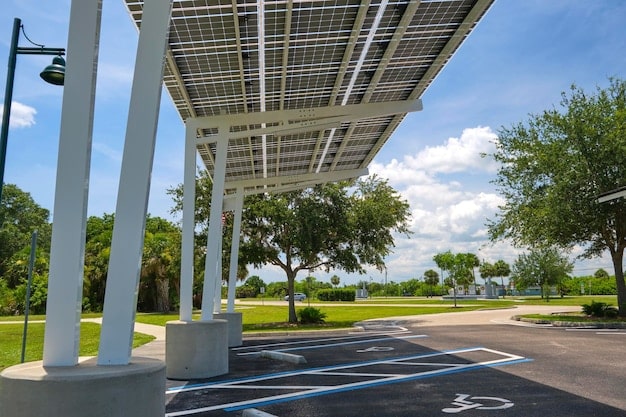US Department of Energy Invests $100M in Advanced Battery Research

The US Department of Energy (DOE) has announced a $100 million investment in advanced battery research to enhance energy storage capabilities and promote a sustainable energy future.
The US Department of Energy Announces $100 Million Investment in Advanced Battery Research, marking a significant step towards revolutionizing energy storage and accelerating the transition to clean energy. This investment aims to drive innovation in battery technology, making energy storage solutions more efficient, reliable, and affordable.
Advancing Energy Storage with Battery Innovation
The US Department of Energy’s (DOE) recent announcement highlights a $100 million investment aimed at propelling advanced battery research. This initiative is designed to address critical challenges in energy storage, fostering innovations that promise to transform various sectors, from electric vehicles to grid-scale energy distribution.
This investment underscores the DOE’s commitment to fostering a sustainable energy future by focusing on enhancing battery performance, reducing costs, and improving the overall efficiency of energy storage systems. The research will cover a broad spectrum of battery technologies, ensuring comprehensive advancements in the field.
Key Areas of Research
The $100 million investment will be allocated across several key research areas, each vital for advancing battery technology:
- Materials Science: Developing novel materials to improve battery energy density, lifespan, and safety.
- Electrolyte Development: Creating advanced electrolytes that enhance ion conductivity and stability, crucial for battery performance.
- Cell Design: Innovating cell designs to maximize energy storage capacity and optimize battery performance under various conditions.
- Manufacturing Processes: Streamlining manufacturing processes to reduce production costs and improve the scalability of advanced battery technologies.
These research areas are interconnected, and advancements in one area often lead to breakthroughs in others, accelerating the overall progress of battery technology. The DOE’s strategic investment aims to foster collaboration and synergy among researchers, ensuring a holistic approach to innovation.

Focus on Next-Generation Battery Technologies
A significant portion of the DOE’s investment will be directed towards the development of next-generation battery technologies. These technologies promise to overcome the limitations of current lithium-ion batteries, offering higher energy density, faster charging times, and improved safety profiles.
The focus on next-generation technologies reflects the growing demand for high-performance batteries in various applications, including electric vehicles, renewable energy storage, and portable electronics. By supporting research in this area, the DOE aims to position the US as a leader in battery innovation and manufacturing.
Solid-State Batteries
Solid-state batteries are a key focus of the DOE’s research efforts. These batteries replace the liquid electrolyte found in traditional lithium-ion batteries with a solid electrolyte, offering several advantages:
- Higher Energy Density: Solid-state batteries can achieve higher energy densities than lithium-ion batteries, allowing for longer driving ranges in electric vehicles.
- Improved Safety: The solid electrolyte is non-flammable, reducing the risk of battery fires and thermal runaway.
- Faster Charging: Solid-state batteries can be charged more quickly than lithium-ion batteries, reducing charging times for electric vehicles.
Research into solid-state batteries is crucial for meeting the increasing demands of electric vehicle manufacturers and consumers who seek longer driving ranges and faster charging times. The DOE’s investment will support efforts to overcome the challenges associated with solid-state battery development, paving the way for their widespread adoption.
Impact on Electric Vehicles and Clean Energy
The advancements in battery technology resulting from the DOE’s investment are poised to have a profound impact on the electric vehicle (EV) market. Improved battery performance, reduced costs, and enhanced safety will make EVs more attractive to consumers, accelerating their adoption.
Moreover, the development of advanced batteries will play a critical role in enabling the integration of renewable energy sources into the grid. Batteries can store excess energy generated by solar and wind power, making it available when demand is high, thereby enhancing the reliability and stability of the grid.
Enhancing EV Performance
Batteries are a critical component of electric vehicles, and advancements in battery technology directly translate to improved EV performance:
- Longer Driving Range: Higher energy density batteries enable EVs to travel longer distances on a single charge, addressing range anxiety among potential buyers.
- Faster Charging Times: Improved charging technology reduces the time required to recharge EV batteries, making EVs more convenient for daily use.
- Lower Costs: Reduced battery costs make EVs more affordable, expanding their accessibility to a broader range of consumers.
By focusing on these key areas, the DOE’s investment will contribute to the development of EVs that are more competitive with traditional gasoline-powered vehicles, accelerating the transition to a cleaner transportation sector.

Supporting US Manufacturing and Job Creation
In addition to driving innovation in battery technology, the DOE’s investment is also aimed at supporting US manufacturing and creating jobs in the clean energy sector. By funding research and development activities within the US, the DOE is fostering a domestic battery industry that can compete globally.
The development of a strong domestic battery industry is essential for ensuring energy independence and reducing reliance on foreign suppliers. Moreover, it creates high-skilled jobs in research, manufacturing, and related industries, contributing to economic growth and prosperity.
Boosting Domestic Battery Production
The DOE’s investment will support initiatives to boost domestic battery production and reduce manufacturing costs:
- Advanced Manufacturing Techniques: Developing innovative manufacturing techniques to improve the efficiency and scalability of battery production.
- Supply Chain Development: Strengthening the domestic supply chain for battery materials and components, reducing reliance on foreign sources.
- Workforce Training: Providing training programs to equip workers with the skills needed to succeed in the rapidly growing battery industry.
These efforts will help to create a robust domestic battery industry that can meet the growing demand for advanced energy storage solutions, supporting economic growth and job creation across the US.
Collaborative Research and Development Efforts
The DOE’s investment will facilitate collaborative research and development efforts among universities, national laboratories, and private companies. This collaborative approach is essential for accelerating innovation and ensuring that research findings are translated into real-world applications.
By bringing together experts from diverse backgrounds and disciplines, the DOE is fostering a dynamic ecosystem that encourages creativity and problem-solving. This collaborative environment is conducive to the development of breakthrough technologies that can transform the energy landscape.
Partnerships for Progress
The DOE’s collaborative approach involves:
- University Research: Funding research projects at universities to explore fundamental scientific questions related to battery technology.
- National Laboratory Programs: Leveraging the expertise and resources of national laboratories to conduct advanced research and development activities.
- Industry Collaboration: Partnering with private companies to commercialize promising battery technologies and scale up manufacturing operations.
These partnerships ensure that research efforts are aligned with industry needs and that innovative solutions are quickly brought to market, maximizing the impact of the DOE’s investment.
The Future of Energy Storage
The US Department of Energy Announces $100 Million Investment in Advanced Battery Research, setting a trajectory for a future where energy storage is more efficient, reliable, and accessible. This investment is not just about improving batteries; it’s about building a sustainable energy ecosystem that supports economic growth and environmental stewardship.
As battery technology continues to advance, we can expect to see further integration of renewable energy sources into the grid, wider adoption of electric vehicles, and new applications for energy storage in various sectors. The DOE’s investment is a catalyst for this transformation, paving the way for a cleaner, more sustainable energy future.
| Key Point | Brief Description |
|---|---|
| ⚡ Investment Amount | $100 million allocated for advanced battery research. |
| 🔬 Research Focus | Materials science, electrolyte development, and cell design. |
| 🚗 EV Impact | Enhancing driving range, charging times, and lowering costs for EVs. |
| 🏭 Job Creation | Supporting US manufacturing and creating jobs in the clean energy sector. |
FAQ
▼
The primary goal is to advance battery technology to enhance energy storage capabilities, promoting a sustainable energy future by addressing critical challenges in the field.
▼
Next-generation technologies like solid-state batteries are a key focus due to their potential for higher energy density, improved safety, and faster charging times compared to lithium-ion batteries.
▼
The investment is expected to enhance EV performance by improving driving range, reducing charging times, and lowering battery costs, making EVs more competitive and accessible.
▼
The investment supports US manufacturing by fostering a domestic battery industry, ensuring energy independence, reducing reliance on foreign suppliers, and creating high-skilled jobs.
▼
Collaborative research among universities, national labs, and companies will accelerate innovation by pooling expertise and resources, translating research findings into real-world applications.
Conclusion
The US Department of Energy’s $100 million investment in advanced battery research signifies a crucial step towards a sustainable energy future. By focusing on next-generation technologies, supporting US manufacturing, and fostering collaboration, this initiative promises to revolutionize energy storage and its applications, from electric vehicles to grid stability.





